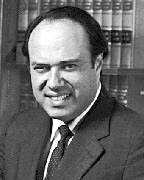One of the more interesting events of 2010 affecting Massachusetts Condominium Law was yet another amendment to our Condominium Statute, Chapter 183A.
Recent Amendments
Our Condominium Statute has been amended many times since its enactment in 1963. Most recently in 2010, Chapter 183A was amended to recognize that the percentage interests in the common areas and facilities of each of the affordable units in a condominium may reflect the reduced value of the affordable units as long as the units remain affordable. This change was long overdue. It merely codifies what a majority of attorneys who draft condominium documents have been doing right along. Units that were subject to affordable housing restrictions should have lower percentage interests than market rate units which were similar to the affordable units. Even though the amendment states the obvious, I believe it was wise to clarify the Massachusetts Condominium Statute on this point. The affordable units have lower percentage interests than market units and therefore smaller condominium fees and less voting power.
While this change is good, I am not pleased with the other change the recent amendment made. The other change allows the use of square footage to determine the manner in which common expenses are allocated. This misses the point. The amendment should have stated that s/f is an allowable method of computing percentage interests. Most people believe that this is what the statute, as it is, provides anyway. The amendment means that percentages must continue to be based on value, but s/f may now be used for the assessment of common expenses. Accordingly, condominium fees could be determined by s/f, but voting and allocation of common element interests would continue to be determined by value. This is an unnecessary complication.
The Uniform
Condominium Act
The foregoing brings me to the main point of this article. Rather than continuing the practice of amending our Condominium Statute every few years to correct a problem, it would be better to adopt the Uniform Condominium Act in place of Chapter 183A. The Uniform Condominium Act has been adopted by a majority of the states. Chapter 183A is a primitive first generation statute. Adoption of the Uniform Condominium Act would bring Massachusetts condominium law and practice into the twenty-first century.
For example, regarding allocation of common element interests, voting, and common expenses, the Uniform Condominium Act allows allocations which are unrelated to value. This type of flexibility should be emphasized. The chief argument for keeping Chapter 183A has always been that it allows for flexibility. Flexibility under Chapter 183A causes problems. Massachusetts courts have stated that Chapter 183A is merely an enabling statute and that matters not prohibited by Chapter 183A are allowed (Tosney v. Chelmsford Village Condominium Association, 397 Mass. 683 [1986]). Matters prohibited by Chapter 183A, however, normally are cast in stone.
Part two will appear in the January 7th, 2011 edition of NEREJ in the Owners Developers & Managers section.
Saul Feldman is a real estate attorney with Feldman & Feldman, P.C., Boston, Mass.
Tags:
 (1).png)








